Book Reviews by Genre: Fiction
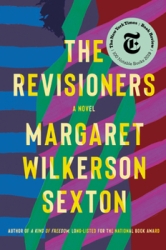
I don’t know about other readers, but generally, as soon as a jacket blurb mentions something like “intergenerational saga” or “centuries-long family lore,” I roll my eyes and drop the book like the proverbial hot potato, sure it’s going to tax me with keeping track of 27 characters and five time periods. For whatever reason, this time, I kept reading past that ominous descriptor, and I’m so glad I did as Margaret Wilkerson Sexton’s moving and engrossing novel, The Revisioners, is one of the best I have read in recent years.
Chapters rotate across three time periods and center on two main characters, Josephine, who was born into slavery but who claims freedom at an early age and lives a long life in Louisiana, and Ava, her great, great-granddaughter, who lives in contemporary New Orleans with her pre-teen son and—in an unexpected twist that becomes increasingly unsettling—her wealthy, white paternal grandmother with dementia. In addition, both Josephine’s and Ava’s own mothers feature vividly in their respective chapters, deepening the layers of national and personal history that Sexton so realistically and poignantly depicts. The maternal line in this family is also characterized by certain gifts of understanding and sight, both earthly and other-earthly, which create a shadowy but certain bond that steadily solidifies among the women as the plot progresses.
Conflicts between our protagonists and somewhat minor but all too powerful white characters in all time periods make for suspenseful, unsettling scenes and, as you might expect, lead to heartbreak and trauma for both Josephine and Ava. Believe me, I cried (well, even sobbed) more than once at the outcome of certain events, but Sexton isn’t after “easy tears”; they would be pointless if not accompanied by genuine acknowledgment of and determination not to hide from our nation’s painful and shameful past, especially on the part of white readers. Even so, the novel’s conclusion (in Ava’s time/place) points towards healing and hope for this family that has endured so much.
I won’t spoil the surprise of the title’s origin and its place in this book (or in which of the three generations of Black American women it is featured), but I found this plot-dependent entity and the way it informs and almost foretells key characters’ lives one of the most poignant and satisfying conceits Sexton employs. I couldn’t recommend this book more emphatically for anyone looking for a serious and unforgettable, not to mention timely, contribution to American literature.
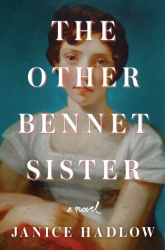
Calling all Jane Austen fans! See the world of Pride and Prejudice through the eyes of Mary Bennet, the oft-overlooked, bookish, and socially awkward middle sister. Watch as she steps out of the shadow of her more charming sisters forging her own path as an independent woman. Loved that I could dive back into the Austen world and that Mary Bennett got the story she deserves!
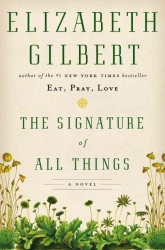
The magical story of Alma, who sees the world with childlike wonder. Living in a simpler world around the turn of the last century, her fascination and passion for working with moss is a unique backdrop for a tale of a woman's growth, empowerment, and reflection amidst a burgeoning world of scientific advancements and great changes in world philosophies.
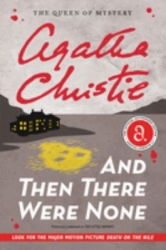
Ten strangers, all holding secrets are invited to an island together. No one knows the man that invited them and soon they will all reveal that they are trapped there. They will have to find creative approaches to make sense of what will happen on that island before all of them are gone. And Then There Were None by world-renowned author Agatha Christie is another great murder mystery. Throughout the entire book you will be thinking of who the murderer is, and every twist and turn will put you on the edge of your seat. This is an amazing book and murder mystery lovers would really enjoy this book.
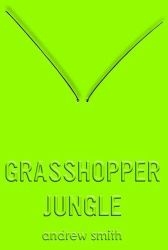
This book was weird.
It felt like a windstorm of ideas blowing in my face; a mad prophet's ravings before catastrophe, and a tangled mess of actions and consequences - but somehow they all connected together? It was a bit of an experience.
Grasshopper Jungle is a story about the end of the world, but like many teen novels, it is simply a backdrop to Austin's personal dramas. One of its tags on Libby is "humor" but I think it's more of a tragedy if anything. The main character and his best friend inadvertently bring about an apocalypse by way of 6-foot tall, ravenous grasshoppers after accidentally breaking a jar they really shouldn't have broken.
The book weaves together the stories of Austin, his childhood experiences, as well as those of his brother, Polish ancestor, the mutant grasshoppers, and random strangers around town (such as his principal, his friend's mom's boyfriend, and a vulgar policeman being memorable ones). It's a lot.
I found this story's distinctive style very difficult to tear myself away from. It was authentic to the protagonist's personality, and it reminded me of the narration of classic epics. It stands out in its themes of memory, religious trauma, sexuality, and identity (and somehow being an apocalyptic story as well). The symbolism was uncanny, and the way the outside world and past timelines mirrored Austin's mental state was very artistic and unique.
Onto my criticisms and confusions: #1 has to be the male characters. I think that every single male character in this story thinks constantly about every other character in a grossly objectifying way. Honestly though, this applies to most of the female characters as well, who are just as lustfully self-interested. Very interesting, but it was a... strange experience to read the nuanced and morally grey portrayal of Austin's ancestor, a gay man who had not-consensual relations with a woman to see if he could "love" anyone other than his dead Communist lover.
Austin himself relates to this ancestor because he, too, is "confused". His gay best friend Robby continually makes advances on Austin, and Austin reciprocates because he is completely in love with Robby. He is also in love with his girlfriend, who doesn't take too kindly to the fact that Austin has kissed Robby during their relationship. Austin even documents the POV of the murderous, bi-curious, mutant grasshoppers.
The ending was extremely abrupt. I'll admit, I was glued to this book for the last quarter, and the ending made me stand up and think "what in the world did I just read". However, in all honesty, it very much suited the style of the book. It never deviates from being a chronicle of the end of the world, and the world around Austin certainly comes crashing down.
Grasshopper Jungle is a weird book that made me think, and I don't regret reading it. It is quite graphic, but if you're interested in this swarm of a book, I highly recommend reading it and forming your own opinion. I might read the sequel, but I'm a bit afraid of what it might hold.
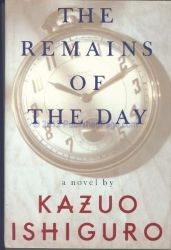
I loved this book! The writing is excellent and it has a very unique storyline. The main character of the novel is Williams, a butler that takes care of a wealthy manor. However, Williams struggles to separate his work and life. While he is very proud of himself and the work he accomplishes, he struggles to obtain things that other humans find joy through such as: hobbies, a lover, a family, etc. I’ve never read a book like this before, and I can see why it’s so well-known and critically acclaimed!
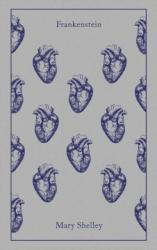
I really enjoyed reading this book! Mary Shelley's 'Frankenstein' is a classic novel that everyone knows. It's a tale about Victor Frankenstein, a scientist, and how he creates life. Except it's made from body parts. What I liked about reading this is that this is the original. Young readers don't really know about all the other complex parts of the story. It was so interesting to read and learn about a narrative I never knew before. More on the plot, it's about how Victor creates a creature and then the seemingly endless and terrifying consequences.
However, this book is incredibly hard to read. The old way it's written makes it easier to get lost or not completely understand what happened. There's a lot of words I had to look up, but the context also helps decipher it. One of my favorite parts of the book is the building suspense. Ultimately, I think this book has so much beauty, because of all the emotions I had while reading it and the message it carries about human nature.
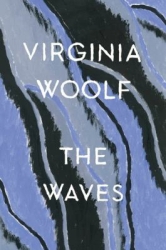
Written in the “stream of consciousness” style, this book is very interesting, but honestly hard to read. There are 6 characters who we follow. Starting when they’re pre-schooler age, to their deaths. Each character has definitive characteristics. I believe each character is supposed to be relatable to in some way, as many of them battle with insecurities, self-comparisons, passions, depression, etc. The writing itself is very good, but it just wasn’t my favorite.
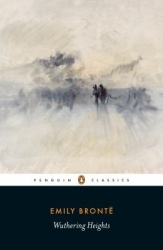
Wuthering Heights by Emily Brontë is a masterpiece! I definitely see why it is such a well known novel. However, it is a Victorian gothic novel, so it does explore uncomfortable themes such as incest and abuse. However, it doesn’t delve into them in a way that’s triggering or uncomfortable. This novel focuses on the Earnshaws, a wealthy family that owns the manor Wuthering Heights. While the family of four once lived happily, one night their father returns home with a new child named Heathcliff. A darker-skinned child from unknown origins. As the child adapts to his new environment, facing abuse and belittlement, he begins to slowly take over the manor. This story is super interesting if you’re interested in dramatic stories! I’d definitely recommend, just be wary of any uncomfortable themes. :)
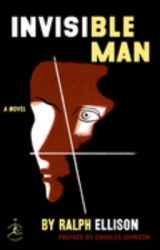
I recently had to read this novel for a class, and I have to say it is very good! While it explores complicated themes such as visibility, African-American movements/social standing, and life in early 1900’s America, it communicates the hardships and intricacies extremely well. The narrator, a black man in the early 1930’s-1940’s, loses his memory of his early life, including his family and even name. He travels through America; experiencing, learning, and exploring what his new life has to offer. Every experience is different, yet still very interesting, which made it feel like I was almost reading separate stories! Yet, it didn’t feel choppy or fragmented in the least. So, I’d highly recommend! I’ve never read any other book like this, and it definitely taught me a lot.
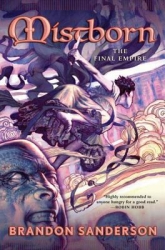
Rebellion in this world is impossible, the king is immortal, and the people are weak, but Kelsier is determined to make a change. Kelsier has a wild plan, Vin a street urchin, gets wound up in this plan. She realizes that this goes deeper than she thought, and that there is always another secret.
This is one of the first books by Brandon Sanderson I've read and it's magnificent. This fantasy book is one of the best I've read, with twists and turns in every chapter. The characters feel real because of their bonds with each other. This is definitely a book that explores relationships, magic, and rebellion.

Once already addicted to the previous two books of this series, the final book of the trio was a must have! Darth Bane: Dynasty of Evil keeps the readers on the edge of their seats! Bane has finally finished training his apprentice, Darth Zannah, in the ways of the Dark Side; However, she seems unwilling to take the title of master for her own. Bane must decide whether to wait longer for Zannah to overthrow him, or he much quickly choose a new apprentice. Which will he choose? Darth Bane, Dynasty of Evil is a perfect book for Star Wars fans, and is an epic ending to the Darth Bane Trilogy.
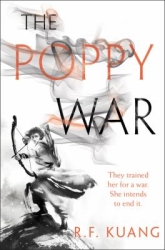
What initially drew me into The Poppy War was all the great things I had heard about the book and it's author R.F. Kuang. Fang Runin, the female main character, was both enjoyable and relatable at many times as she fought for a spot in Sinegard, the country's most elite military academy, in hopes of getting away from an arranged marriage. The book spans over a few years and eventually deals with some very intense and dark themes throughout the book. Kuang does not shy away from any details and makes the book feel incredibly real and allows a deeper connection with the character's emotions.
The pace of the book really picks up towards the second half, and I was constantly surprised where the story went next. The Poppy War is also very heavily inspired by Chinese folklore, but Kuang adds her own touch to the story, making the book seem very unique. I really enjoyed this book and is a definite five star for me.
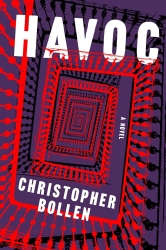
As a reader, do you gravitate towards relate-able, conventional, sweet narrators and stories that follow a comforting and predictable arc, ending in the literary version of “All is well”? If so, then read no further. Christopher Bollen’s page-turning, stomach-churning, prediction-spurning Havoc is not the novel for you.
Bollen’s sole narrator is octogenarian Maggie Burkhardt, a Wisconsin expatriate in Egypt during the pandemic, and Bollen’s use of the first person pays satisfying homage to its origin as an “unreliable narrator.” The book’s synopsis gives us a strong nudge in the “be wary of this narrator” direction, but it also complicates matters by adding an 8-year-old boy, arriving at the shabby-chic hotel on the edge of the Nile in the Sahara Desert with his harried mother, who quickly morphs into an unsettling and eerie nemesis for Maggie.
The peripatetic, well-heeled guests, Ben and Zachary, an American gay couple whom Maggie has befriended and feels comfortable with, as well as Ahmed, the local hotel manager with the proverbial heart of gold, who has warmly welcomed Maggie since her arrival from a mysteriously swift departure from Switzerland, provide rich and believable layers of characterization and sub-plots that robustly deliver from start to finish. But there’s never a doubt that Maggie is the axis around which this beguilingly straightforward yet actually quite twisty plot revolves.
While busying herself with ruminations about which guests might need her special “help” in overturning their lives for the good (ahem)—something Bollen makes sure that readers know is not a newly developed habit--Maggie tries and, to her astonishment, spectacularly fails to befriend young Otto. Subsequently, she becomes convinced that the precocious and troubled 8-year-old, who has quickly inserted himself into the homey interpersonal fabric of the sprawling and laid-back hotel, is on to her. As it happens, she may be right.
Bollen skillfully lays a crumb trail for readers—though never too many crumbs at once!—to suss out and/or add puzzlement to Maggie’s history and motives. Was Maggie’s long-time marriage to Peter who predeceased her as perfect as she recounts? And what’s going on with their daughter who appears in brief, hazy recollections as both a child and an adult when “she died”? The uneasy pleasure of this novel rests in the interwoven nature of Maggie’s unreliable memory and self-talk with the disturbing and escalating aspect of her and Otto’s game of one-up-man-ship. Is Maggie right about her suspicions of this child? Is the kid, in this case, “all right” or….decidedly not? And when friendly Ahmed finally cools towards Maggie because he’s heard just one too many contradictions in her back-story, should we feel pity for someone whose sanity is unraveling or a fervent hope that she be caught out before something worse happens?
The answers to these questions may possibly differ for every reader. But the staggering conclusion, rendered with an admirable combination of nail-shredding suspense and gut-punching abruptness, seemed worthy of Poe to this reader. Kudos to Bollen on his rendition of a “tale of mystery and imagination!”
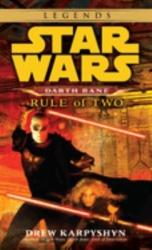
After getting a taste of the raw thrills provided by Drew Karpyshyn’s first novel, Darth Bane: Rule of Two was a must-have! Now having destroyed the Brotherhood of Darkness, Bane must find a suitable apprentice to carry on the power of the Dark Side; His choice: a little girl called Rain who, despite her size, is immensely powerful in the dark side. Bane must struggle to trust his choice of an apprentice, for the future of the Sith relies on it, while Rain must prove that she is worthy of the title of a master. With a similar mix of action as the previous book, this novel also incorporates an integral struggle, making it even more interesting. Darth Bane: Rule of Two will certainly have your hyperdrive engines ready to boost to the third and final book of the series!
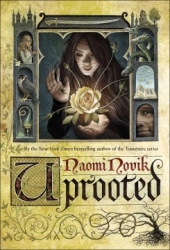
One of my first experiences with the writing of Naomi Novik was with Spinning Silver . This Rumpelstiltskin retelling was quite interesting and complex compared to the original fairy tale it was based on. Realizing this was the second in a “series” (of which I’m using this term loosely), I eventually sought this book’s predecessor. Uprooted seems to be an adaptation of eastern European folktales, but with more of the romance aspect that I expect from these kinds of fantasy books.
As with other fairy tale retellings, Uprooted starts off with plenty of tropes from the Grimm fairy tales. Dragons stealing maidens from their families, peasant farmers in poverty, things like that. It continues into the predictable tropes of the Dragon being misunderstood and the fair maiden resisting his cold personality long enough to have him warm up to her. Fortunately, this book is deeper than the tropes it was based on. The depth of the story is partly why it's much longer than the common folktales it might be based on.
I appreciated the magic system and the descriptions of how it felt to use this magic. I thought the cursed woods trope was developed in a much more interesting way than you usually see in these kinds of stories. The eventual romance between the two characters was telegraphed for a while, leading to a slow burn that was fairly erotic. About my only qualm with this book was the audiobook narration. The narrator had an authentic sounding eastern European accent, which fit the story's potential origins, but at the cost of being unable to understand what she was saying sometimes.
A deeply rich fairy tale with both old and new tropes, I give Uprooted 4.0 stars out of 5.
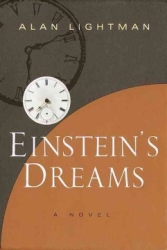
I can appreciate poetic works that try to string each idea together into a connected narrative. I've seen few that have done this as well as Einstein's Dreams has. Of course, the problem with trying to make all these disparate poems work together is that they are still just brief glimpses into stories that could easily stand on their own. Perhaps that's the curse of well-written poetry—it leaves you wanting more. I'd almost consider these stories as writing prompts for anyone looking to make an entire book out of the dreams of the world's best physicist.
Many of the stories in this collection/novel play upon the ideas of general relativity. The way the physics is described and how the people in these worlds live feel legitimately realistic. Of course, sometimes the physics "gimmick" isn't revealed until the end of a story, thus leaving me in the dark as to what was actually happening as I read through the dream. I didn't have enough patience to read through these stories again to fully understand the way their worlds worked.
As a cohesive narrative, there isn't much that advances the story here. It's mostly focused on exploring interesting applications of theoretical physics in the terms of people and their lives. Some are stronger than others, but they're all basically the same idea repeated a couple dozen times in slightly different packaging. And maybe I was expecting something more like Shakespeare in Love (1998) where Einstein's dreams help him break through the concepts he's trying to discover. Instead, the titular character is only in a few pieces of joining text that frame the whole collection. But at least the prose was pretty.
Poetic exploration of theoretical physics, I give Einstein's Dreams 3.0 stars out of 5.
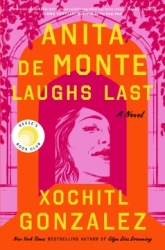
Gonzales is both a non-fiction and fiction writer, whose excellent articles I've read in well-known publications like The Atlantic Monthly. This book is the first novel of hers I've read, and I was not disappointed.
Our two key narrators are Anita, a Latina artist whose husband, we discover right away, killed her in 1980s New York City; and Raquel, a Latina art student in late 1990s Rhode Island, trying to find her way in a predominantly white and privileged community while also maintaining and respecting her cultural roots.
Both Anita (who narrates from the world of the dead and who can use a form of Santeria to manifest her actions and "essence" to people still living) and Raquel share the experience of falling for privileged and self-involved white men, both of whom are controlling and abusive in various ways. While Anita is a fighter to the last, Raquel's self-confidence rises slowly but steadily throughout the novel until the finale when readers see her blossom into a woman who can and will stand up for herself and for her family and true friends.
Beyond the two women's dangerous (and in Anita's case. deadly) relationships with controlling white men, the other linked plotline centers on Anita's art work being gradually erased after her death and the promise that Raquel will somehow unearth those works and breathe new life into them. My only quibble with the progress of this plotline is that its resolution felt rather rushed, not quite providing the satisfaction that a slower, longer narrative of Anita's re-discovery would have.
Gonzales's writing style is propulsive in parts and poetic in others. Her two protagonists are drawn vividly, and even without the named alternating chapters, it would be hard to confuse one voice with another. The conclusion of both narrators' stories shines a light on the importance of women defining themselves outside their roles in men's lives. I think Gonzales also does well to portray Anita and Raquel not simply as victims of male violence and general douche-baggery but as flawed, smart, emotionally conflicted women whose sexual and romantic decisions are as fraught with passion and blind spots as any real-life woman's is.
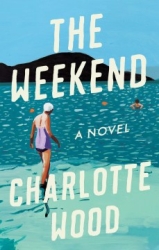
This book by an Australian writer is one of the best novels I've read this year, centering on the lives of four women in their 70s who've known each other for many years. Three of them gather for the duration of the novel to clear out the home of their friend who has died and to know that this place too will no longer be part of their lives. Readers are witness to their struggle to come to terms with their loss and how they will (or won't) continue their now-reduced friendship. The narration toggles easily from one of the (living) women to the next and back, always propelling plot elements even as the narrative voice changes so that the reader isn't getting "re-runs" of several occurrences just because the point of view changes. In addition, each character is sharply defined and unique, so different from each other, in fact, that it's a wonder they were ever friends to begin with. And this narrative tension among the three as they each ruminate on their memories of the absent fourth and chafe against the foibles and flaws of each other felt poignant and, to me, exquisitely realistic.
Many books I've read that I've loved for a good portion have fallen apart or ended on a "bleh" or even a "wtf?" note. Not this time! What will probably stay with me the longest as Wood's admiring reader is the graceful precision of her final depiction of these tough, wise, messy, sad, funny, and unforgettable women. It involves some high drama, for sure, but also, the ocean--and what this small coastal Australian slice of it has meant to all of them.
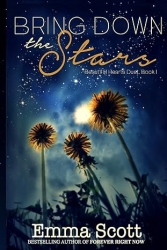
I'm not sure where I picked up this book on Kindle, but it finally took me two years to finish it (I'm excruciatingly slow at reading eBooks). To expand my horizons, I thought reading a romance novel would be good for me. Bring Down the Stars feels like a classic partly due to its heavy resemblance to Cyrano de Bergerac. Its tropes feel solidly planted in the genre, even to the point of being almost timeless. Still, the characters are a little frustrating.
When I finally sat down to focus on reading this book, it hooked me pretty well. The writing is beautifully poetic—which is most often seen from the male point of view (POV). The female POV was a good counterpoint to give the reader both sides of the story while also making the miscommunication between these star-crossed lovers a buildup to either passionate love or a complete destruction of the friendship. That dance between the two is likely what keeps people coming back to this genre. I get it now. It's maddening, but I get it.
I found the modern elements interesting because they could have easily been swapped out for similar situations in centuries past. As I mentioned above, this is basically a Cyrano re-telling, but with two athletic college students in love with the same farmer's girl. Which war the men went off to is irrelevant, as it could have just as easily been the American Revolution or Civil War. It frustrated me that there wasn't a conclusion in this book, as it would have been easy to accomplish without the need for a second book. If I feel up to exploring the genre again, I might pick that sequel up.
A modern take on a classic romance, I give Bring Down the Stars 3.5 stars out of 5.
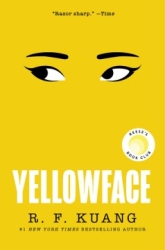
There are plenty of books with authors as the main character, but Yellowface feels like the first time that the struggles have been expressed in such a realistic way. Most author protagonists seem to exist in this vacuum where nobody else in their close circles shares their love of writing and publishing stories. They have no network with other authors or can commiserate over another rejected manuscript. And while Yellowface takes a bold approach to addressing diversity in the publishing world, it still ultimately paints the main character as a villain.
One cannot overemphasize social media's effects on the modern publishing landscape. Anything authors can do to break through the noise, they’ll attempt just to get more traction to sell their book. Tons of talented authors are overlooked for a variety of reasons, but Yellowface asks whether pursuing marginalized voices has created the unintended consequence of marginalizing the voices that used to be promoted. The frustration is real, but Juniper’s actions are not the answer. The thrill of Yellowface’s plot is how long she’s able to get away with it before she’s caught and tried in the square of public opinion.
As an author, a lot of this book made me feel seen. We always tell ourselves that our fellow writers are not competition, but it’s difficult to see others succeed when our own works go unnoticed. Jealousy is real, but we work through it and celebrate with our fellow authors so that someday they can come alongside us and celebrate our victories as well. Even if the ending gets a little weird, the way R.F. Kuang gives an intimate look into this community of writers feels authentic enough to be a universal experience for most authors.
A gripping, tongue-in-cheek examination of author rivalry, I give Yellowface 4.5 stars out of 5.
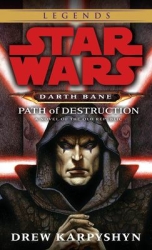
When I first opened the novel, I had idea what to expect and I didn’t even if I knew I would like the book, but that quickly changed when I became addicted to the story. With an incredible mix of action and adventure, Drew Karpyshyn’s novel: “Darth Bane: Path of Destruction” is hard to beat. Readers join an Outer-Rim miner named Dessel on his journey to morph into his true self: Darth Bane. I personally enjoyed how Drew worded this book, with specific, yet easy to read details. Alongside a captivating storyline, there is nearly non-stop Star Wars action. If any readers thirst for a special Star Wars book that does not sacrifice action with dialogue, I would highly suggest Darth Bane: Path of Destruction.
(Hungry for more Drew? Check out the sequel of this book: Darth Bane Rule of two!)
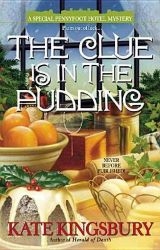
“The Clue is in the Pudding” by Kate Kingsbury is a delightful read for those who enjoy a delicious mix of bone-chilling mystery and delightful drama. In it, Cicily Baxter, owner of the Pennyfoot Hotel, is hoping to have a very merry Christmas this year. She is planning on entertaining her guests at her annual Christmas party in order to draw in business. Alas, not everything is going as planned. Her head maid has gone to visit family, and the replacement is the most opinionated, fussy, and unfriendly person she has ever met. She causes all sorts of trouble with the rest of her staff. When things seem unable to get any worse, a guest dies mysteriously in his room, and the new maid is chief suspect. However, things are not exactly what they seem, and motives begin popping up left and right amongst the guests. Can Cicily sniff out the murderer before Christmas arrives? As part of the Pennyfoot Hotel series, it may require some thinking from the reader to fill in the holes of the characters’ backgrounds if they have not read any of the other books. The plot is somewhat long, but it is worth it once the end comes! For readers who like romance, suspense, and drama all in one, this book is sure to be a real treat!
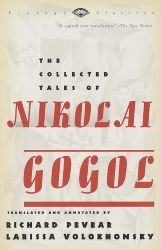
The Portrait by Nikolai Gogol is one of his best short stories centering around a penniless artist, Chartkov, struggling to make his name in the art world and finds himself entranced by a portrait he buys at a merchant shop. With a steely face, build of a giant, and eyes that seem to pierce the soul, the portrait that he buys on an impulse at a run-down shop carries a mystery with it that haunts Chartkov both in his waking hours and in his sleep. As he is overcome by his financial difficulty, the strange portrait that he stashed away for fear of its gaze changes his life forever. With flowing imagery and an intrinsic description of human nature and its afflictions, The Portrait latches onto the reader’s heart and presents them with a fascinating account of Chartkov and his peculiar encounter with the portrait with uncanny realism and blended fantasy.
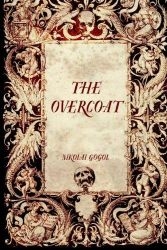
Nikolai Gogol's "The Overcoat" is a simple yet intriguing story of a man set upon buying a new overcoat despite his poverty-stricken life. Enamored with his job of copying documents at the office, Akaky never takes notice of the world around him, even when all the other workers around him gibe at his love for something so mundane as replicating documents and the intense manner of which he regards this dull job. However, he is sharply brought into reality when winter brings frigid weather, and he realizes his threadbare and tattered overcoat simply will not sustain Russia's winter. He begins his speculations into buying a new overcoat with as much zeal as he puts into his office work, yet he hardly expects what the future holds both for him and his overcoat. Both amusing and thought-provoking, Nikolai gives the reader insight into the life of an eccentric office worker laboring during the harsh winter and successfully blends farce comedy with blunt realism to create a short story that stirs the emotions and leaves the reader satisfied.
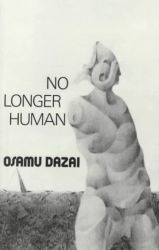
I began this book because I was interested in the author, Osamu Dazai, as some of his life and feelings were reflected in this work of literature. Overall, I enjoyed the perspective that Yozo brings on both life and humanity.
No Longer Human by Osamu Dazai is a fictional story that follows the main character, Oba Yozo, throughout his tumultuous life as he feels estranged from humanity and those around him. Yozo as a child yearns for something in life which he cannot find in the untruthful and utilitarian way that the people he is surrounded by choose to live. As he searches for what it is to be an authentic human being while battling his own disconnect from society, his view on life as a whole changes. As time progresses Yozo’s life takes a bold path, highlighted by his erratic behavior in order to “qualify as a human” as he enters college, still struggling with his fear of exposure and masking his true nature under a comedic facade. The way that Yozo is characterized brings forth a layer of depth and instills a deeper understanding of both him and human nature through his perspective. The book touches on many themes that are prevalent even in our modern-day world such as alienation from society and individual struggle of expression as well as fear of being ostracized. The story of Yozo and his wayward life is intriguing, and I think that one of the reasons that it is still widely read and appreciated both in the West and in Japanese literature is because Yozo brings out the things in people which often are hidden away, revealing some of what it is to be human. His account as he goes through life also adds a refreshing take to things often perceived as mundane, inviting the reader to muse upon them and form their own opinion themselves. However, I was not able to fully enjoy the book because of the overly cynical view it took on life especially towards the end of the story which I believe is a reflection of the author’s similarly deteriorating life.
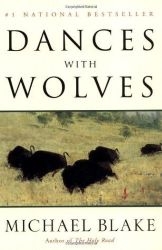
A novel about a civil war veteran alone (or at least he thinks he is) in the American frontier, Dances With Wolves is an exciting adventure story about belonging and acceptance for those different from you set in the 1860s. Lieutenant Dunbar, the main character, must come to terms with his Native American neighbors, his internal struggles, and his own past.
I enjoyed this book a lot more than I was expecting to, and it even made me laugh out loud several times. I really liked the description and the way Blake writes. I would recommend this book to anyone aged eleven or twelve and above, because of violence and one or two adult themes, though all of it is done very tastefully. Although technically there are no cowboys in this story, this book had a cowboy kind of feeling because of its setting and the characterization of Dunbar. It was quite entertaining and versatile. It is somehow both a lighthearted book and an in-depth commentary on how relationships define us as members of the same species, despite cultural boundaries and mentalities.
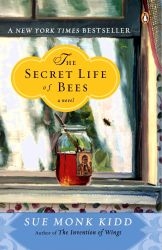
This book is about a motherless fourteen year old white girl named Lily. She must learn to overcome her own prejudice and grief, in addition to her struggles at home, which would not be possible without the help of three African-American beekeeper sisters and their unwillingness to give up on her. Although there is some adventure (there are conflicts with racists and Lily's father), mostly this book is a coming-of age novel and about Lily's search for a place where she belongs, growing up in the American South of 1964.
I personally strongly disliked this book, because I found the main character insufferable, but I can appreciate the writing style and
the thoughtfulness that was put into it. If you are looking for a coming-of-age story in which the writing is very descriptive and honest, maybe this book is for you.
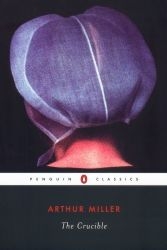
The Crucible was a book I enjoyed simply because it is all a big metaphor. Even though the book is set at the time of the Salem Witch Trials, it is actually the author's views on the Red Scare in the US and "Mccarthyism". I love the character development throughout the story, and Miller truly makes them all come alive. The decisions they make, especially Proctor's, are very relatable and do not feel forced, which pushed me to keep reading. It is a beautiful play that takes a dark time in America to explain another dark time, and its use of rhetorical devices and fantastic writing makes it incredibly valuable.
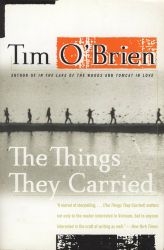
The Things They Carried was a book I had to read for school, but one I started to enjoy. I love the way the author uses very descriptive language to portray every setting and character, making you feel like you are right there with them. The book does a greta job at addressing various moral dilemmas in society and how the "societal rules" change during times of peace and war. Overall this book was not my preferred genre, however the writing is superb and it is a great book to challenge thinking. While it may be hard to relate to characters at times, it definitely makes you stop and think about yourself and where you are.